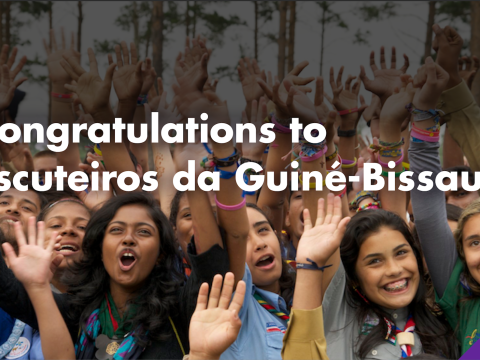Escuteiros da Guiné-Bissau declared a Member Organization of WOSM

The Republic of Guiné-Bissau is (officially) a Portuguese-speaking country located in the western coast of Africa, sharing borders with Senegal and the Republic of Guinea.
Scouting was introduced in Portuguese Guiné in the year 1966, through the Catholic Church and the direct action of Father Artur Carreira das Neves. His aim was to provide young people with non-formal education based on the principles and methods of the Scout Movement. This led to the creation of Corpo Nacional de Escutas Guiné-Bissau – Catholic Scouting, which was forbidden in 1974, after the independence of the country and the installation of a unitary regime.
In 1993, along with the liberalisation and democratisation of the country, two Scout associations were raised, namely Corpo Nacional de Escutas da Guiné-Bissau (CNE-GB) and Organização dos Escuteiros da Guiné-Bissau (OEGB).
To fulfil the requirements of membership in the World Organization of the Scout Movement, the two associations signed an initial Memorandum of Understanding in January 2012 and, after an agreement in May 2016, which constituted the basis for a merge that gave place to only one Scout association: Escuteiros da Guiné-Bissau (EGB).
EGB is a voluntary, non-political, educational movement for young people open to all without distinction of gender, origin, race or creed, in accordance with the purpose, principles and method conceived by the founder of Scouting. Its aim is to contribute to the development of young people by supporting them in achieving their full potential as responsible citizens and members of their communities.
EGB is composed of 34 local groups spread throughout the country, with a total membership 9,698 individuals, including leaders. These groups can be pluri-confessional or linked to a certain religion. Traditionally, each local group is composed of four units, one for each age section (Cubs, Scouts, Ventures and Rovers). The coordination of EGB is done by a National Team (Direção Nacional) elected on a regular basis, in accordance with the statutes.